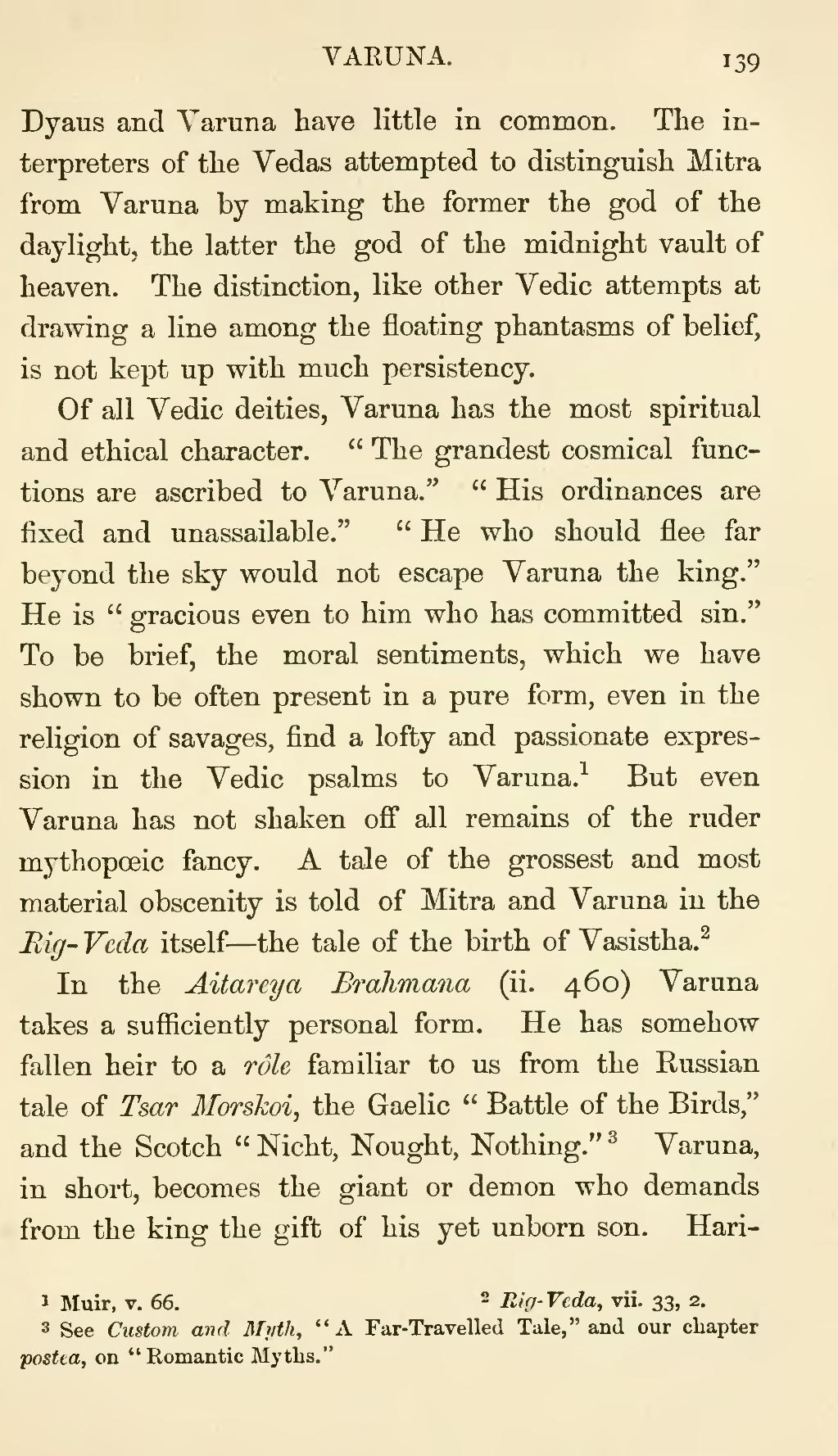Dyaus and Varuna have little in common. The interpreters of the Vedas attempted to distinguish Mitra from Varuna by making the former the god of the daylight, the latter the god of the midnight vault of heaven. The distinction, like other Vedic attempts at drawing a line among the floating phantasms of belief, is not kept up with much persistency.
Of all Vedic deities, Varuna has the most spiritual and ethical character. "The grandest cosmical functions are ascribed to Varuna." "His ordinances are fixed and unassailable." "He who should flee far beyond the sky would not escape Varuna the king." He is "gracious even to him who has committed sin." To be brief, the moral sentiments, which we have shown to be often present in a pure form, even in the religion of savages, find a lofty and passionate expression in the Vedic psalms to Varuna.[1] But even Varuna has not shaken off all remains of the ruder mythopœic fancy. A tale of the grossest and most material obscenity is told of Mitra and Varuna in the Rig-Veda itself—the tale of the birth of Vasistha.[2]
In the Aitareya Brahmana (ii. 460) Varuna takes a sufficiently personal form. He has somehow fallen heir to a role familiar to us from the Russian tale of Tsar Morskoi, the Gaelic "Battle of the Birds," and the Scotch "Nicht, Nought, Nothing."[3] Varuna, in short, becomes the giant or demon who demands from the king the gift of his yet unborn son. Hari-
- ↑ Muir, v. 66.
- ↑ Rig-Veda, vii. 33, 2.
- ↑ See Custom and Myth, "A Far-Travelled Tale," and our chapter postea, on "Romantic Myths."
